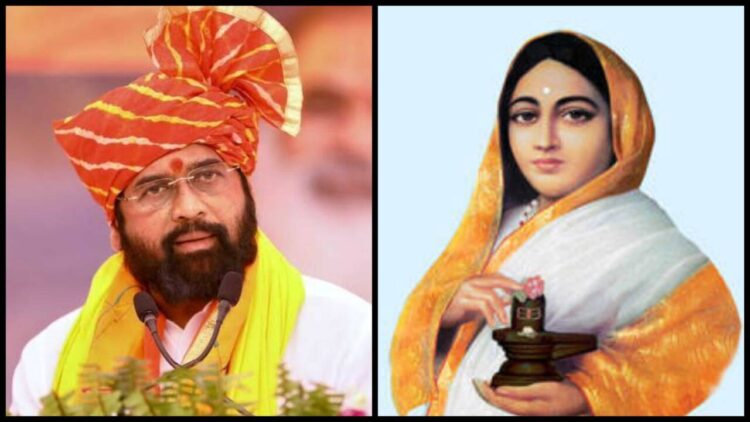On March 13, 2024, the Maharashtra Cabinet approved the renaming of Ahmednagar as “Ahilyanagar” in the honour of the esteemed 18th century Maratha Queen Ahilyabai Holkar. This announcement was made on Ahilyabai Holkar’s 298th birth anniversary.
Devi Ahilyabai Holkar was a Maratha queen of the Holkar dynasty who ruled Malwa and most of Indore after the death of her husband Khanderao Holkar and father-in-law Malhar Rao Holkar, who is credited to have founded the Holkar State. During her rule, she shifted the capital to Maheshwar. She was born in the village of Chondi in Jamkhed.
She is primarily known for leading armies to battle and also made a significant contribution in constructing Hindu temples that were destroyed by Islamic invaders. The current Kashi-Vishwanath Temple was constructed with Ahilyabai’s grants. During her lifetime, she had reconstructed hundreds of temples and dharmashalas all across India.
Ahilyabai Holkar is renowned for her remarkable leadership during the tumultuous 18th century in Malwa Province where she established Maheshwar as the capital of the Holkar dynasty. Her administration stood out for its effective governance and enlightened polices.
The re-naming of Ahmednagar follows previous initiatives by the Eknath Shinde-Devendra Fadnavis government, including renaming Aurangabad as Chhatrapati Sambhaji Nagar and Osmanabad to Dharashiv earlier this year.
The demand of renaming Ahmednagar was championed by the BJP leader MLC Gopichand Padalkar representing the influential Dhangar community as both she and her father-in-law Malhar Rao Holkar hailed from this very shepherd community highly prevalent in the Indian states of Maharashtra, Karnataka, Madhya Pradesh and Goa.
Ahmednagar was founded by Ahmed Nizam Shah in 1494, later became the capital of the independent Sultanate of Ahmednagar, Aurangabad established by Aurangzeb in the 1650s and Osmanabad named after Mir Osman Ali Khan have undergone name changes as part of this trend. The decision adds to the series of renaming initiatives undertaken by the Maharashtra government, reflecting a deeper historical and cultural heritage and re-evaluation.



















Comments